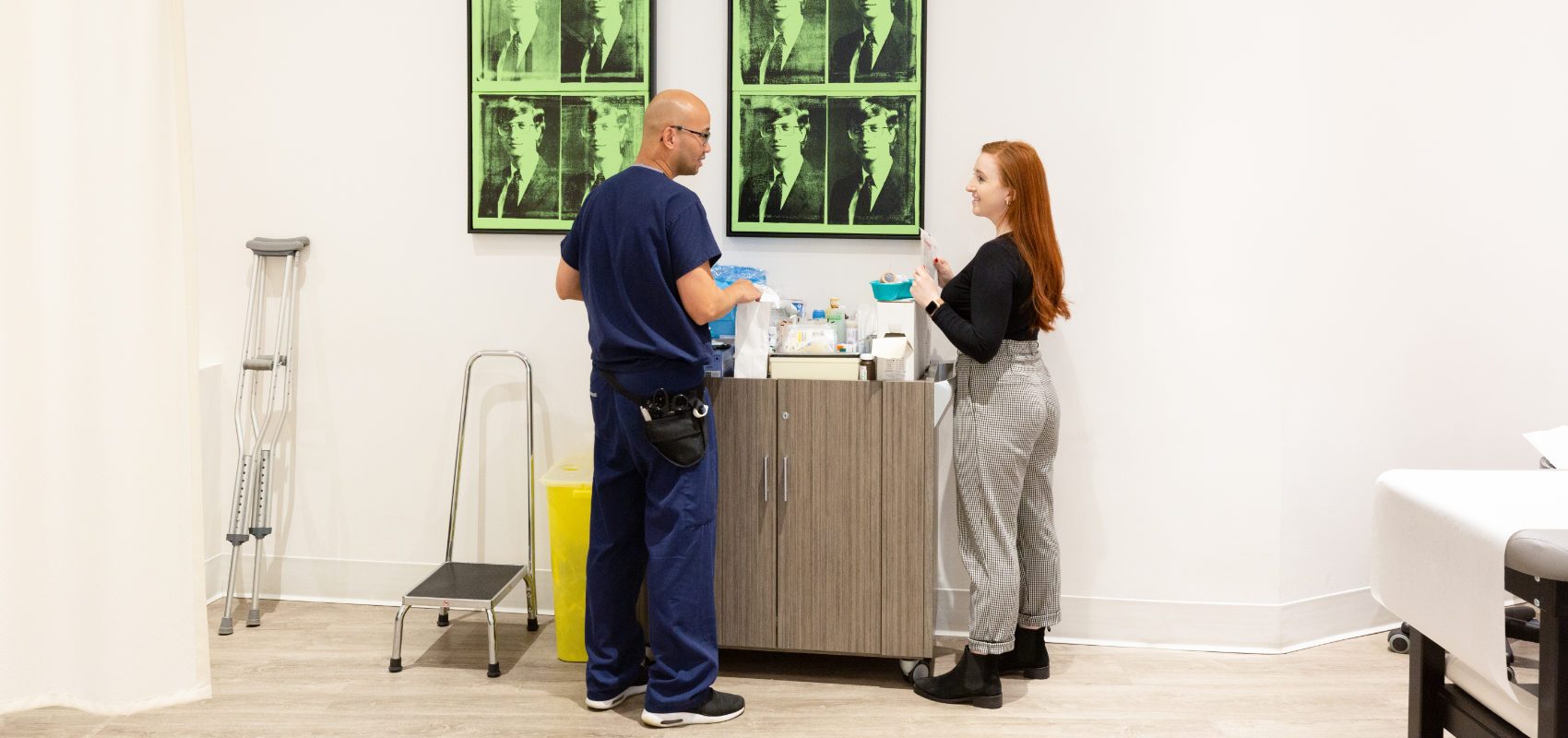
Hospital Stay
All patients are contacted the day before your surgery with all information needed regarding the time to check in for their surgery, and where to go when arriving at the hospital. All patients must follow these guidelines:
- Have a shower or bath, washing the area that will be operated on well with soap and water,
- Do not shave the area that will be operated on (we might cancel your surgery if do),
- Dress in loose, comfortable clothing,
- Do not wear make-up, nail polish, perfume, jewelry, or contact lenses.
At the Hospital – Before Surgery
Upon arriving at the hospital, patients should proceed to the admitting desk where a hospital staff member will direct patients to the pre-surgery area. A member of the Footbridge medical team meets all patients just before the surgery. An anesthesiologist will discuss the type of anesthesia being administered; one of the following: general anesthesia, a nerve block (spinal) or local anesthetic. (Those who are receiving either a nerve block or local anesthetic will be awake during the surgery.)
Read more information about nerve blocks.
At the Hospital – After Surgery
After surgery is complete, patients are moved from the operating room to the recovery room where they remain for 1 to 3 hours. Those patients who will be remaining in the hospital will be moved to a ward/nursing unit. Those who are in for day surgery will be sent home once awake and the pain is under control. Patients who are going home will receive instructions from someone on the medical team regarding how to proceed, plus a date and time for your next post-op appointment with the surgeon. Because patients are still quite groggy at this time, it is recommended that the post-op information is shared with a companion or family member.
NOTE: it is important that you have come to the hospital with all equipment needed for post- op because immediately after the operation, many of these items will be needed.
Pain
After surgery, patients will experience pain that will range from mild to severe. For those patients who are remaining in the hospital, please call the nurse at any time if you need something more for pain, or if you feel your pain medication is not working. If you have been discharged, and are struggling to manage the pain, please call and speak with a Footbridge Patient Care Coordinator.
The pain medication provided will be in any of the following forms: pill, given with a needle, or given through an intravenous (IV) pump that can be controlled with a push button. Patients who feel sick or itchy in response to the medication should inform the nurse or contact Footbridge immediately.
The doctors monitor pain using different scales by asking for example “on a scale from zero to ten, where zero means no pain at all and ten means the worst pain ever, how much pain are you having right now?” This helps the care team to understand the level of pain and decide if more pain medication is required.
Patients should always ask for more pain medicine before the pain gets unbearable (pain pills take about 30 minutes to start working):
- For mild pain, patients should take either extra strength acetaminophen or an anti-inflammatory every 4 to 6 hours.
- For moderate pain, patients should take extra strength acetaminophen and an anti-inflammatory at the same time, every 4 to 6 hours.
- For severe pain, patients should take the opioid (if one was prescribed) and anti-inflammatory as instructed.
When pain is managed, recovery happens quicker and it is easier to move around.
Anti-inflammatory medicines are not for everyone after surgery. Patients with (or have had) health problems such as stomach ulcers, kidney disease, or a heart condition, consult with your surgeon or family medicine doctor before taking.
The most common unwanted effects of pain medicine are stomach upset and constipation.
Swelling
After surgery, it is common to experience swelling in the area that has been operated on. While in the hospital, patients’ swelling will be monitored. Once at home, please let a member of the Footbridge Care Team know if the cast, bandages or walker boot feels too tight.
To reduce swelling and pain or prevent swelling from getting worse:
- Elevate the effected area (ie: foot, wrist, knee).
- Move the joints above and below the area operated such as wiggling your toes, and bending and straightening your leg.
Numbness
Depending on the surgery received, a local anesthetic will be placed in the nerves surrounding the area. Patients sometimes notice numbness but no pain until the anesthetic wears off; this is normal. Numbness can last between 12 to 20 hours. If the numbness lasts longer, please tell a member of your care team. Do not wait until the numbness wears off to being taking the pain medication.